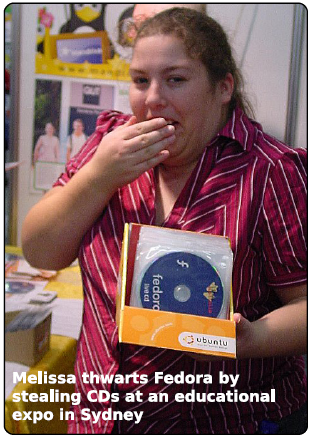I am tickled pink to announce the details of the next Ubuntu Developer Summit taking place at Dolce La Hulpe Hotel and Resort in Brussels, Belgium from the 10 – 14 May 2010.
The Ubuntu Developer Summit one of the most important events in the Ubuntu calendar and at it we discuss, debate and design the next version of Ubuntu. We bring together the entire Canonical development team and sponsor a large number of community members across the wide range of areas in which people contribute to Ubuntu. This includes packaging, translations, documentation, testing, LoCo teams and more. UDS is an incredible experience, filled with smart and enthusiastic people, fast paced and exhausting, but incredibly gratifying to be part of the process that builds the next Ubuntu.
It is important to note that UDS is not a conference. It is absolutely a participatory discussion-based summit in which we work together as a team to define what our next release will look like. If you are planning on attending or planning on applying for sponsorship, you should be prepared to participate in the sessions actively.
For every UDS, Canonical sponsors a number of community members to attend the event. We are looking for those who want to bring some real insight and expertise in their area of Ubuntu, be it development or community governance. If you feel you could offer this but can’t afford to cover your expenses of attending, you should apply for sponsorship.
How To Request Sponsorship
Luckily, requesting your sponsorship is pretty simple, and we a simple system to handle sponsorship requests. To apply for sponsorship, just follow these simple steps:
* Go to http://summit.ubuntu.com/uds-m/ and log in with OpenID. When you have logged in, click the Request Sponsorship link.
* On the first page, add your location and use the About yourself box to tell us why you should be sponsored and tell us about your work on Ubuntu – here you should tell us your vital stats – tell us your any 5-A-Day numbers, any work on the sponsorship queue, what you have uploaded, which teams you are in, your LoCo involvement, documentation you have written, any translation work and other work that you have been involved in. When you have done this, click the Next button.
* On the final page, answer the questions and then click Finish to finish your sponsorship request.
More details on requesting sponsorship are here.
PLEASE NOTE: we have a re-direction bug at the end of this process that affects some people. Don’t worry though, your application is still saved to the system. We are currently in the process of fixing this bug.
All done.
Everyone should get their sponsorship requests in by Fri 26th March 2010 to be considered. Good luck!
(Posted for Jono Bacon, 2010-3-2 at 20:18 UTC)
